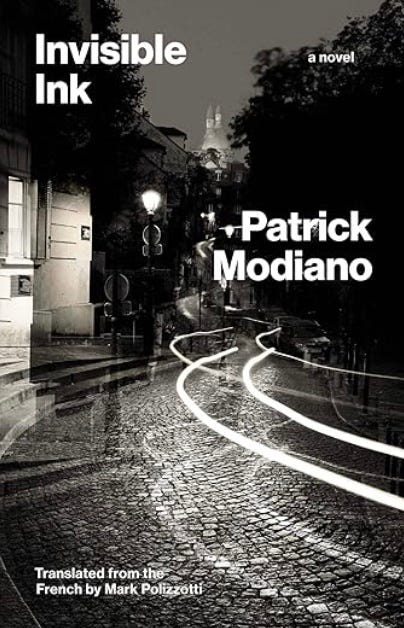BookLife Dual Review by Carol O'Day: Sundays in August and Invisible Ink (Patrick Modiano, author)
Sundays In August: Nice, France, jewel theft, fugitives, memory, intrigue, romance, crime. Invisible Ink: Paris, missing person, private investigator.
BookLife Dual Review by Carol O’Day: Sundays in August and Invisible Ink (Patrick Modiano, author)
Winner of the 2014 Nobel Prize, Patrick Modiano’s novel, Sundays in August, is a study in memory and loss. Translated from the original French by Damion Searls, Sundays in August immerses the reader in a fog of partial memories in the post-War underbelly of Nice, France. The story is told by an unnamed first person gentleman narrator, reflecting back in time to the events of the novel. His memory contains gaps and is missing key details.
The story he tells is one of intrigue and tragedy. He and his lover, Sylvia, fled from the outskirts of Paris. They were on the run from a criminal enterprise that included Sylvia’s ’s faux-husband and his compatriots. Sylvia absconded with a significant jewel that the thuggish ex and his buddies were attempting to sell to his mother. In Nice, the couple lived more or less in hiding, or at least on the watch for those who may be pursuing them. Their plan, such as it was, was to locate a buyer for the jewel and then to escape to parts unknown. They encountered a mysterious couple, ostensibly part of an embassy, who befriended them and expressed interest in purchasing the stone. The story unfolds to a dramatic conclusion, but with many unanswered questions. I will not spoil the reveals here. The overall tone is like a noir crime film.
Invisible Ink, also by Modiano, translated from the French by Mark Polizzotti, is less accessible. It, too, is a study in the unreliability of memory. It is similarly told by a narrator in hindsight, recalling experiences and an unsolved mystery from decades earlier in his life. Yet, the pieces in this novel don’t coalesce or cohere quite as neatly as they did in Sundays in August. The narrator recounts his engagement as a private investigator in his early years before becoming a writer. Hired to investigate the disappearance of a young woman, reportedly from the area of his own hometown near the Alps, he prowls Paris for clues. As he recalls his investigation, he remembers encountering several characters each of whom had minimal, glancing knowledge or contact with the woman, but no one with particularly helpful leads. The story culminates in an oddly personal, yet not clearly understandable, conclusion.
These two Modiano novels are full of similar descriptions of the elusiveness of memory, and mourn the gaps that evolve in our memories as we age. Modiano articulates this phenomenon beautifully in a way that both offers comfort to the loss and nostalgia and recognizes the occasional frustration that can accompany fading memory:
“Trying to bring my research up to date, I get a very strange feeling. It’s as if all this was already written in invisible ink. . . . Perhaps, at the turn of a page, what was set down in invisible ink will gradually emerge, and the questions I’ve been asking myself for so long about Noelle Lefebvre’s disappearance, as well as the reason I’ve been asking myself those questions, will be resolved with the precision and clarity of a police report.”
And shortly thereafter, is a line that remained with me long after reading the book, “It comforted me to think that even if you sometimes have memory gaps, all the details of your life are written somewhere in invisible ink.”
Both of these novels are set in Modiano’s native France and evoke a distinctly French ethos, whether in Nice or Paris. The bistros, the cafes, the pastries, the buildings, the aperitifs, the cobbled streets and lampposts, as well as the names of famous and less famous avenues and boulevards, create a strong sense of place, grounding the nebulous memories in reality. The books are both short, 152 and 165 pages respectively. As such, they operate as brief sojourns for the reader to another place and time, and a together are a meaningful exploration of the power of memory and its fading.
Support independent bookstores and BookLife: Reviews for Readers by purchasing Sundays in August and Invisible Ink using the links below:






